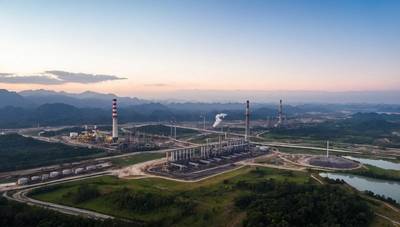Malaysia increases coal power production and imports to meet growing demand
Malaysia has increased its coal-fired electricity production and imported the fuel in record numbers, according to a data analysis. The country is taking advantage of the low prices, but also pledges to use more gas-fueled electricity generation over the long term. Malaysia is the 5th largest exporter of liquid natural gas, but it has stated that due to increasing demand and diminishing gas reserves, the nation could begin importing super-chilled fuel. The nation has gradually increased coal-fired electricity production to meet the surge in demand from data centres.
In May and June, coal-fired electricity production in Peninsular Malaysia, where 80% of the power demand is met, increased by nearly 9%. Data from Malaysia's Grid System Operator showed that this was three times faster growth than the 3% increase in power demand.
The data revealed that output from coal-fired plants increased 16.8% during the first half July, while demand for electricity grew by 5.2%. Data from Kpler show that Malaysia imported a record number of 20.9 million tons of coal during the first half this year.
Kesher Sumeet is an LNG analyst with Energy Aspects. He said that low coal prices combined with the regulated and cap power prices in Malaysia have discouraged gas-fired generators this year.
The GSO data revealed that coal's share in power generation increased to almost 60% in the first six months of 2025. This is on track to reach the highest levels annually since the COVID-19 Pandemic. Meanwhile, natural gas-fired electricity's share may fall to its lowest level since demand was curtailed by the economic shutdown caused by the pandemic.
The gas-fired electricity output fell for ten consecutive months, with an average monthly decline of 11.3%. It also dropped 15.3% during the first half July.
Raksit pattanapitoon is an analyst at Rystad energy. He said that Malaysia will continue to rely on coal as the fuel costs are almost 40% lower.
He said that the tipping point would be reached when solar penetration in Malaysia's grid was sufficient to force baseload coal, which is not flexible, to shut down at daytime. However, Rystad Energy doesn't expect this to occur on a regular schedule until 2030. Malaysia will increase gas-fired power by 50%, and double the renewable energy capacity to meet data centre demand.
Tenaga Nasional Bhd, the state-owned utility, predicts that power demand will increase by as much as 4,5% this year.
(source: Reuters)





